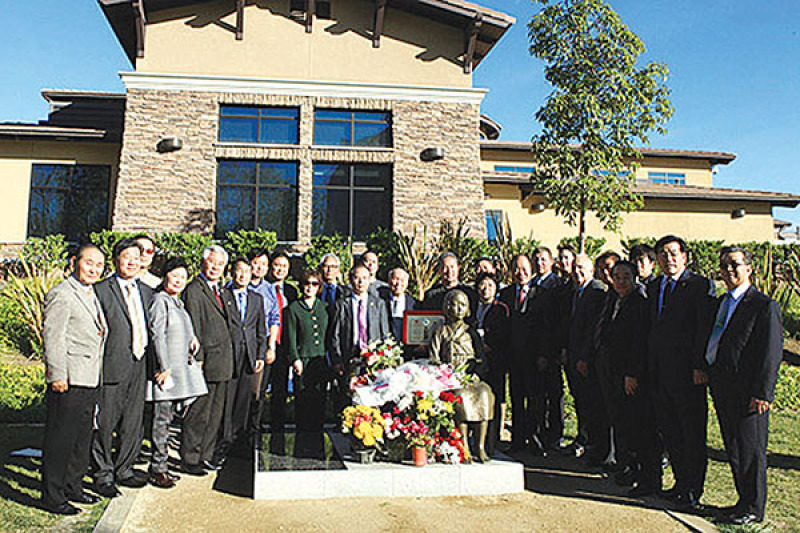
What would a Christian's perspective look like regarding the issue of the Japanese Army's "comfort women'? How could the long-lasting and historical pain that resulted from their abuse be resolved? The Presbyterian Theological Seminary in America hosted a forum regarding the issue called, "Christian Social Justice and the Japanese Army's Comfort Women Issue" on March 17.
Reverend Jeong Kii Min, the senior pastor of Choong Hyun Mission Church who also has a PhD in Christian Ethics, was the presenter on this topic. He started by defining this issue as a "collective sin," and approached the issue from a social justice standpoint, as well as a spiritual standpoint.
First, Min asserted that as much as the sin was a "collective' one committed by a people group, repentance must happen collectively as well.
"Christianity emphasizes personal repentance and individual spiritual maturity, but there is a lack of awareness in collective sins embedded in societal structures," Min said. "Liberation theologians brought attention to the idea that personal repentance does not resolve a collective evil. Personal repentance must be the launching pad by which the fruit of collective repentance is brought about."
From this standpoint, the comfort women issue began with individuals, but progressed into a systemic sexual crime and collective evil led by the government. Hence, for this issue to be resolved and for justice to be realized, a collective and official apology and compensation is necessary.
According to Min, compensation must take place in multiple forms and embedded in multiple layers. The individual who suffered mental and physical damages must receive compensation from the perpetrators of the crime. And the entire process of discussing matters of compensation, or carrying out justice, must be done with the intention of comforting and healing the victims. On the governmental level, the two governments must continue their efforts to maintain peace and restoration.
"Today's Japanese government has deleted, distorted, deceived others of, and shifted its responsibility of the war crimes it has committed," Min said critically. "It no longer wants this issue to be a subject of discussion and is working to forget it happened."
However, such an approach is bringing about a "negative influence to the peace and reconciliation with [Japan's] surrounding nations," Min said, and "teaches us that bearing the responsibility for the past includes admitting the wrong and having a change of heart and actions, as well as reconciling with surrounding nations and restoring amicable relations with them."
Min also discussed the spiritual aspects of this issue, apart from the social justice aspects. He argued that the government's continued efforts to gloss over and conceal this issue is a tactic being employed by spiritual forces. "Satan himself masquerades as an angel of light" (2 Cor. 11:14), Min quoted, and said that Japan's attempt to gloss over the issue, such as by calling the victimized women "comfort women,' is a symptom or evidence of its captivity to evil spiritual forces.
"Currently, the political right-wing of Japan is not sincerely reflecting on the wrongs that the country has committed, nor is it encouraging its younger generation to reflect objectively on its past failures. Rather, it shows symptoms of a collective captivity. When an entire society is held captive by a certain ideology, they themselves are unaware of that fact," Min explained. "Even the death of Jesus was an act of evil that was carried out by a people who were held captive under a supernatural power."
Min also suggested practical ways that churches could help to resolve the comfort women issue by sharing experiences from his own church. Choong Hyun Mission Church held a musical concert in 2014 in commemoration of the first anniversary since the Glendale peace monument was established in honor of the victims of sex slavery. Around that time, Min also preached for three weeks regarding social justice to create a mutual understanding with the congregation. Among the younger ministries, resources about social justice were disseminated and families were encouraged to visit the monument together.
"Revealing, exposing, and examining history, rather than hiding it, is a part of humanity's effort to avoid repeating the same mistakes," Min said.
This article has been translated. For the original in Korean, visit kr.christianitydaily.com.

















